What Vegetable Should Not Be Composted? Essential Tips for Successful Composting

Composting is an excellent way to reduce waste and create nutrient-rich soil for your garden. However, not all vegetable scraps are suitable for composting. Certain vegetables can attract pests, create odors, or disrupt the balance of your compost pile. In this article, we will explore which vegetables you should avoid adding to your compost bin, ensuring your composting efforts are successful and sustainable. By understanding the potential pitfalls, you can maintain a healthy compost environment that supports your gardening endeavors while also being mindful of what goes in. Let’s delve into the essential tips for effective composting.
What Vegetables Should Not Be Composted?
When considering what vegetables should not be composted, one of the primary culprits is onion. Onions contain pungent compounds that can affect the microbial activity in your compost pile, potentially leading to an imbalance in the decomposition process. Additionally, their strong odor may attract unwanted pests such as rodents and insects, which could disrupt your composting efforts. Other vegetables to avoid include garlic, potatoes, and any diseased or moldy vegetables, as they can introduce pathogens to your compost and negatively affect the quality of the finished product.
Why Onions Should Be Avoided
Onions are often discouraged in compost heaps because they release sulfur compounds during decomposition, which may create an unpleasant smell. Moreover, the high moisture content in onions can lead to a soggy compost pile, impeding air circulation and making it less aerated. This can further slow down the composting process and create a less effective end product.
The Issue with Garlic
Like onions, garlic also has strong odors and may contain antimicrobial properties that hinder the growth of beneficial bacteria in compost. By adding garlic to your compost, you may disrupt the natural balance necessary for effective composting, leading to slower breakdown of organic materials. Its ability to deter pests might seem beneficial, but it can also lead to challenges in maintaining a healthy compost ecosystem.
Why Potatoes Can Be Problematic
Potatoes present a unique problem for composting due to their potential to harbor diseases such as blight. When composting diseased potatoes, there is a risk of spreading pathogens throughout the compost, which can later affect the plants that will be fed with the compost. Additionally, sprouted potatoes can root and grow in your compost, diverting nutrients from the remaining organic material.
Dealing with Diseased Vegetables
Composting diseased vegetables is generally a bad practice, as it risks introducing harmful pathogens and diseases into your compost pile. These could remain viable in the compost and later be transmitted to healthy plants when the compost is used. To maintain a healthy and effective composting system, it is essential to remove any diseased or moldy vegetables before adding to the compost bin.
Other Vegetables to Avoid
In addition to onions, garlic, and potatoes, there are several other vegetables that are best kept out of the compost bin. This includes any processed or cooked vegetables, as they may contain oils, salts, or other additives that can disturb the composting process. It's also advisable to avoid adding starchy vegetables, which can attract pests and slow down decomposition.
| Vegetable | Reason for Exclusion |
|---|---|
| Onion | Strong odor and sulfur compounds |
| Garlic | Antimicrobial properties disrupt composting |
| Potato | Can harbor diseases and sprout |
| Diseased Vegetables | Risk of introducing pathogens |
| Processed Vegetables | Contain oils, salts, or additives |
What vegetables should you not compost?
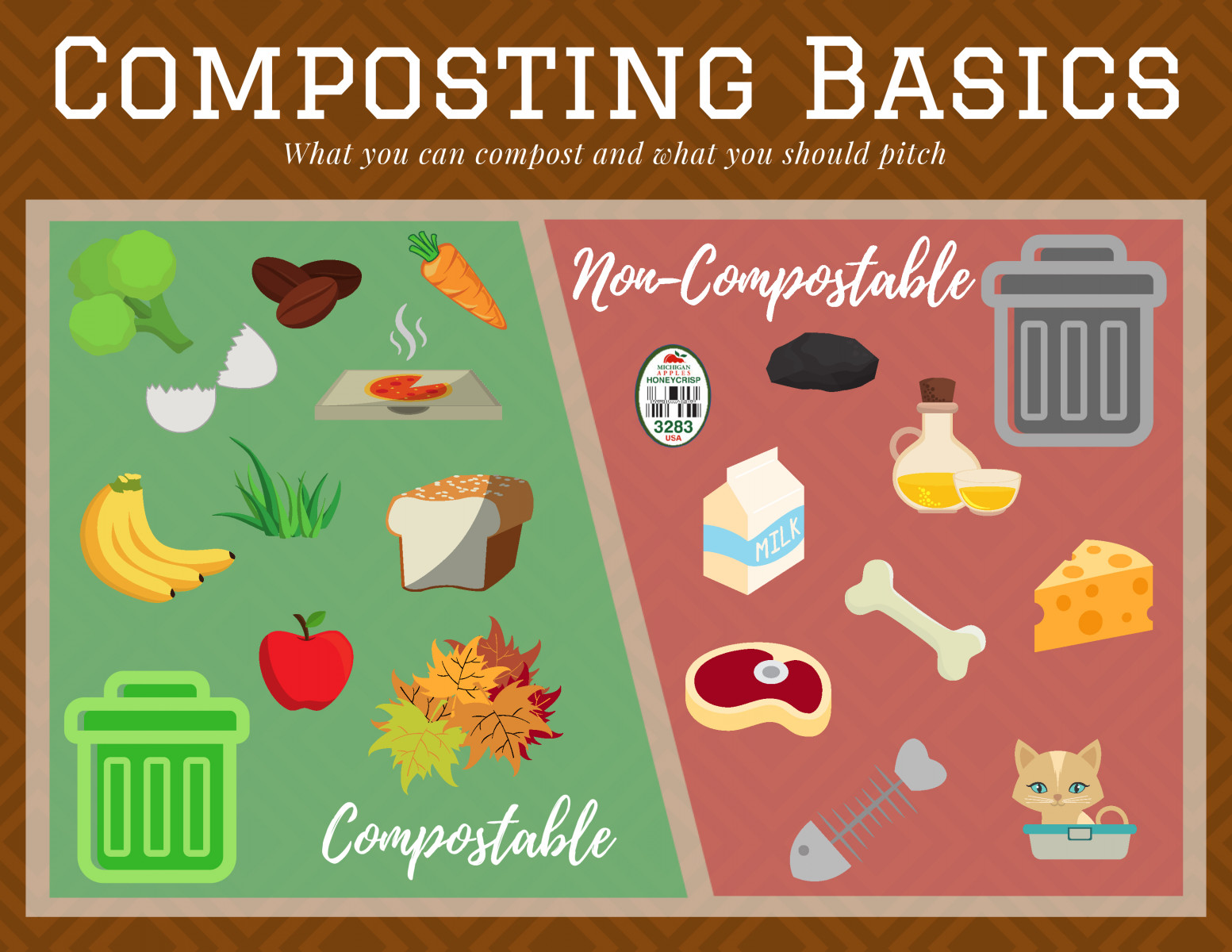
When composting, it's essential to know not all vegetables are suitable for the compost pile. Some can create issues in the composting process or attract unwanted pests. Here are some vegetables you should avoid composting:
1. Vegetables that attract pests
Certain vegetables are known to attract pests that can cause problems in your compost pile. These various insects can either invade your compost bin or infest your garden later. Avoid composting:
See also:
- Garlic - While beneficial in small amounts, its scent can attract pests.
- Onions - Similar to garlic, they can also bring unwanted insects to your compost.
- Cabbage - Its strong smell can attract pests like cabbage moths.
2. Glossy or waxy vegetables
Some vegetables, such as bell peppers or certain types of eggplants, have glossy or waxy skins that can impede the decomposition process. They may not break down as efficiently, leading to a slower composting experience. Consider avoiding:
- Bell peppers - Their skins can be tough and slow to decompose.
- Eggplants - The waxy coating makes them less suitable for compost.
- Cucumbers - The thin skin can create issues unless broken down beforehand.
3. Root vegetables and tubers
Root vegetables and tubers can be an issue when composting due to their tendency to re-sprout if not properly managed. This can lead to unwanted plant growth in your compost pile. Avoid adding:
- Potatoes - They can sprout and grow in your compost.
- Carrots - Similar to potatoes, they may re-root in your compost.
- Beets - Their growth can become problematic if thinned improperly.
4. Cooked vegetables
Adding cooked vegetables to the compost can introduce oils and salt that may harm the composting process. These ingredients can lead to odors and attract pests. It's better to leave out:
- Pasta with vegetables - Typically contains oils that do not compost well.
- Vegetable soups - Added salt and seasoning can disrupt the compost balance.
- Stir-fried vegetables - The oil can slow down the breakdown process.
5. Diseased or moldy vegetables
Composting diseased or moldy vegetables can spread diseases to your garden crops. It’s crucial to avoid adding them to maintain a healthy compost environment. Stay clear of:
- Moldy tomatoes - They can introduce fungal diseases if composted.
- Diseased peppers - Can harbor pathogens affecting future plants.
- Rotten squash - May attract pests and spread rot in your compost.
Can you put all vegetables in compost?
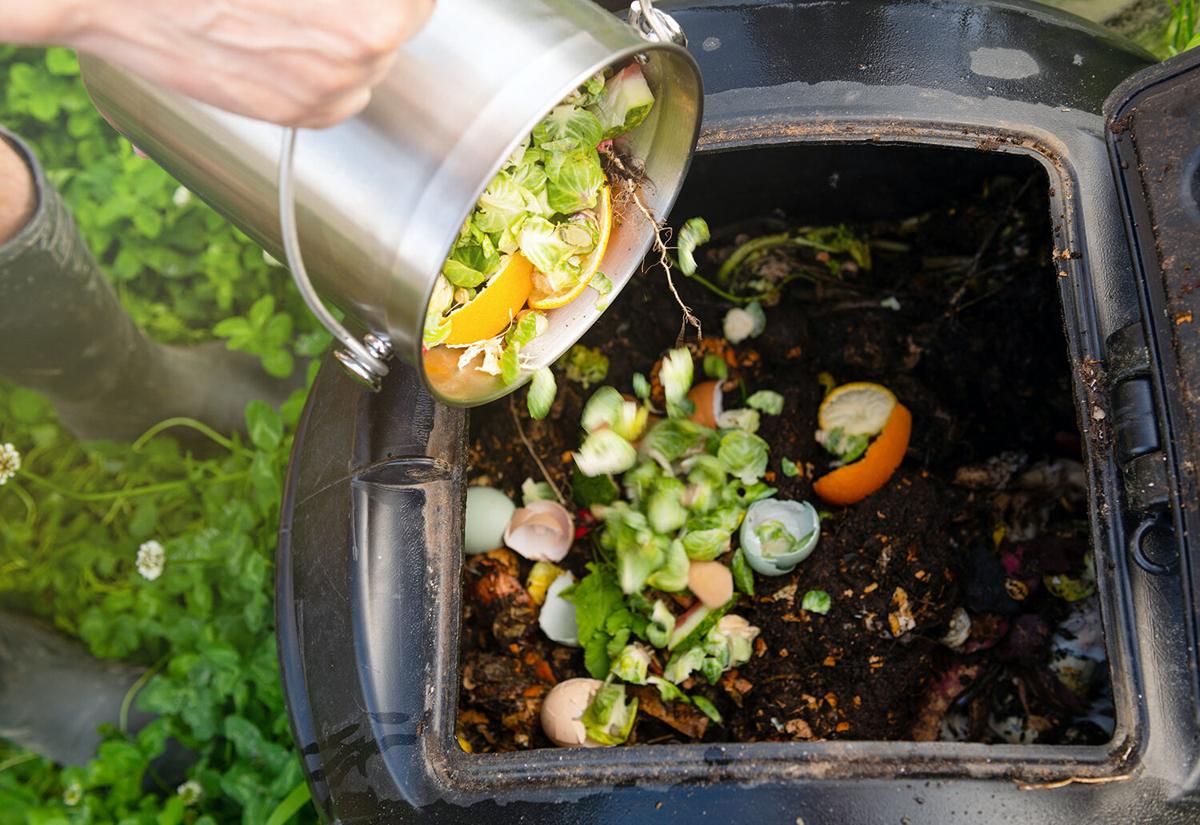
Certainly! Here’s a detailed response to the question along with five relevant subtitles in HTML format.
Composting Basics
Composting is the process of breaking down organic materials into a nutrient-rich substance that can enhance soil health. While many vegetables can be added to compost, it's essential to understand the types that are suitable for this process. Some vegetables break down well and contribute valuable nutrients, while others may attract pests or create odors.
- Green Materials: These are rich in nitrogen and include fresh vegetable scraps, grass clippings, and leaves.
- Brown Materials: These provide carbon and include dry leaves, branches, and cardboard.
- Moisture Balance: A good compost pile requires a balance of green and brown materials to decompose properly.
Vegetables That Should Not Be Composted
While most vegetable scraps can be included in compost, some vegetables are better left out. Avoid composting certain items that can disrupt the composting process or attract pests.
- Onions and Garlic: These can struggle to decompose and may lead to strong odors.
- Citrus Peels: High acidity can affect the compost pH balance.
- Cooked Vegetables: These may contain oils or fats that can attract rodents.
Benefits of Composting Vegetables
Composting vegetables provides numerous benefits not only for home gardeners but also for the environment. It reduces waste and enriches soil, making it an excellent practice.
- Nutrient-Rich Soil: Compost adds essential nutrients back into the earth.
- Soil Aeration: Improves soil structure and helps retain moisture.
- Reduced Waste: Diverts food scraps from landfills, reducing methane emissions.
Ideal Conditions for Composting Vegetables
Creating the perfect environment for composting vegetables is crucial for successful decomposition. Certain conditions will enhance the breakdown of organic material.
See also: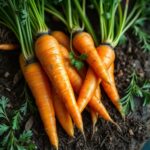
- Temperature: Compost should reach between 130°F to 160°F for optimal microbial activity.
- Moisture: The pile should be damp but not soggy; think of a wrung-out sponge.
- Aeration: Turning the compost pile regularly allows for oxygen flow, aiding in decomposition.
Composting in Different Environments
The approach to composting vegetables can vary depending on available space and resources. Different methods suit different environments, whether urban or rural.
- Traditional Compost Piles: Ideal for large spaces where you can easily manage larger volumes of organic waste.
- Compost Tumblers: Great for smaller yards; they allow easy mixing and aeration of the compost.
- Vermicomposting: Uses worms to break down vegetable scraps in smaller spaces, ideal for apartments.
Is it safe to eat vegetables grown on a compost pile?
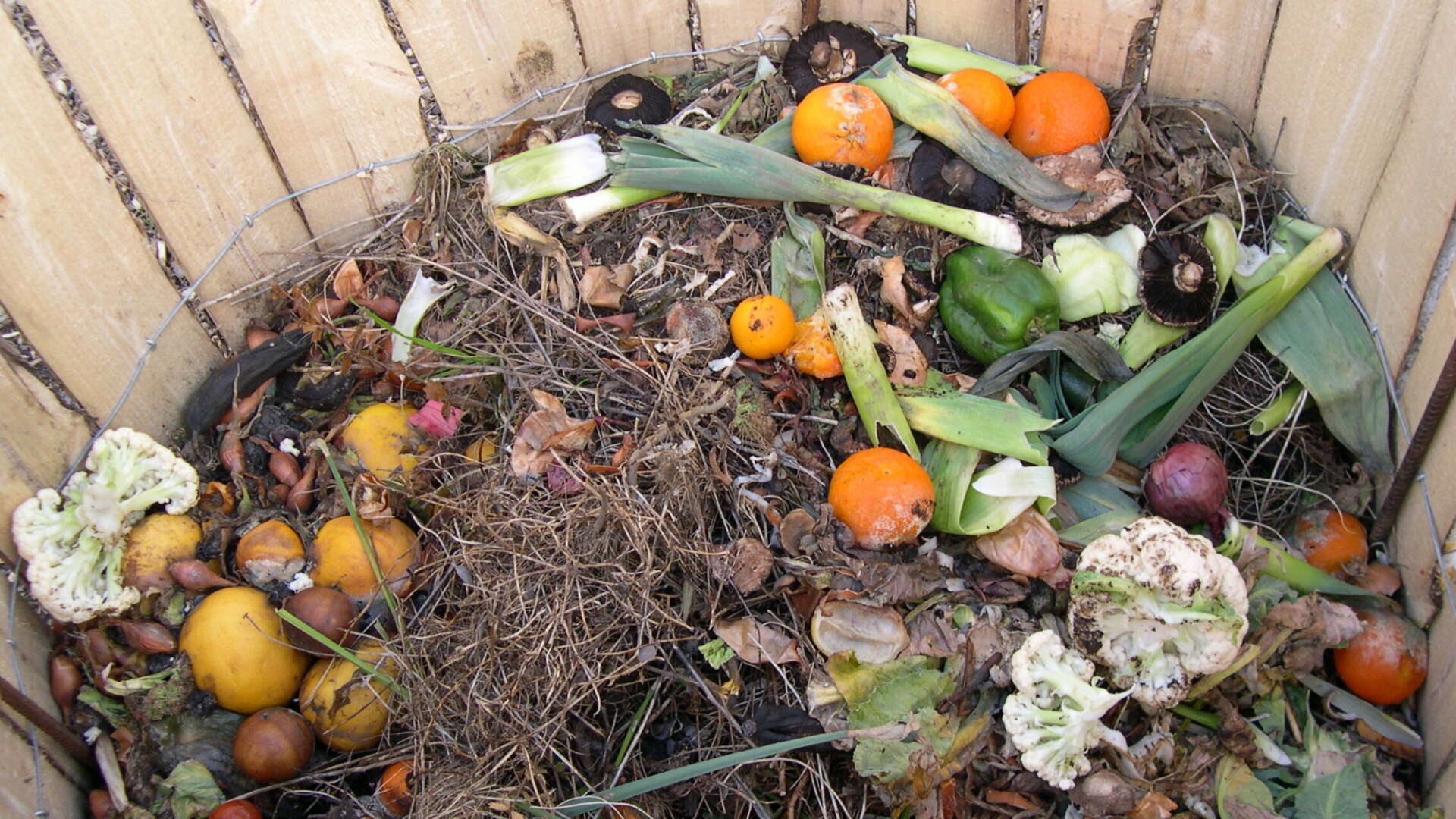
The safety of eating vegetables grown on a compost pile can be a concern for many gardeners. Composting is an excellent way to recycle organic material and enrich soil, but it is essential to follow certain practices to ensure the vegetables grown in such an environment are safe for consumption. Here are a few factors to consider:
Understanding Compost Quality
The quality of the compost significantly affects the safety of vegetables grown in it. If the compost is made from organic materials free of contaminants, it can be safe for vegetable growth. However, if it includes:
- Animal Waste: Manure from pets or untreated animal waste can harbor harmful pathogens.
- Contaminated Materials: Using plant materials that contain pesticides or herbicides may introduce harmful chemicals.
- Diseased Plants: Composting plants affected by diseases can spread pathogens to the vegetables.
Pathogen Risks
Vegetables can be exposed to pathogens if the composting process is not managed properly. Certain microorganisms that can cause illness, such as:
- E. coli: Often found in contaminated soil and can lead to serious foodborne illnesses.
- Salmonella: Can thrive in improperly composted materials, especially if animal waste is involved.
- Giardia: A parasite that can be present in composted human waste if not treated correctly.
Composting Process and Temperatures
The composting process must reach appropriate temperatures to ensure the breakdown of harmful pathogens. Following proper composting techniques can help:
- Thermophilic Stage: Maintaining temperatures between 130°F to 160°F helps to kill most pathogens.
- Composting Duration: Allowing compost to mature for at least three months can further reduce risks.
- Aeration: Turning the compost regularly helps to maintain an aerobic environment that inhibits pathogen growth.
Types of Vegetables Suitable for Compost Garden
Certain types of vegetables may be safer to grow in compost piles, especially if harvested correctly. Consider:
- Root Vegetables: These vegetables, such as carrots and radishes, have a protective layer that can reduce contact with soilborne pathogens.
- Leafy Greens: Should be carefully washed after harvest, as they are more exposed to pathogens that may be present in the compost.
- Fruiting Vegetables: Tomatoes and peppers may benefit from compost if it is well-aged and pathogen-free.
Best Practices for Growing Vegetables on Compost
To ensure the safety of vegetables grown in compost, certain best practices can be followed:
- Use Safe Materials: Ensure all compost materials are free from chemicals and diseases.
- Monitor Compost Temperature: Regularly check and maintain the compost temperature to ensure pathogens are eliminated.
- Wash Produce Thoroughly: Always wash vegetables thoroughly to remove any potential contaminants before consumption.
Questions from Our Readers
What vegetable should not be composted?
It's generally advised to avoid composting onions and garlic. These vegetables can create issues due to their high sulfur content, which may produce strong odors and attract unwanted pests to your compost pile.
Why are citrus peels considered bad for composting?
Citrus peels can be problematic in composting because they are highly acidic and may disrupt the pH balance of the compost pile. This acidity can hinder the breakdown process and slow down the composting activity.
See also: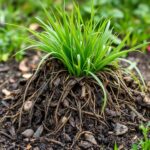
Can I compost vegetable trimmings from cooked vegetables?
While raw vegetable scraps are excellent for composting, cooked vegetable trimmings should be avoided as they often contain oils, fats, and other ingredients that can attract pests and create unpleasant odors in your compost bin.
Are there any vegetables that may attract pests when composted?
Yes, vegetables like corn husks and potato peels can attract pests if composted in large amounts. It's better to chop these scraps finely and mix them with other materials to ensure a balanced compost pile and minimize pest attraction.

If you want to read more articles like What Vegetable Should Not Be Composted? Essential Tips for Successful Composting, we recommend you check out our Compost category.
Leave a Reply
Related Articles